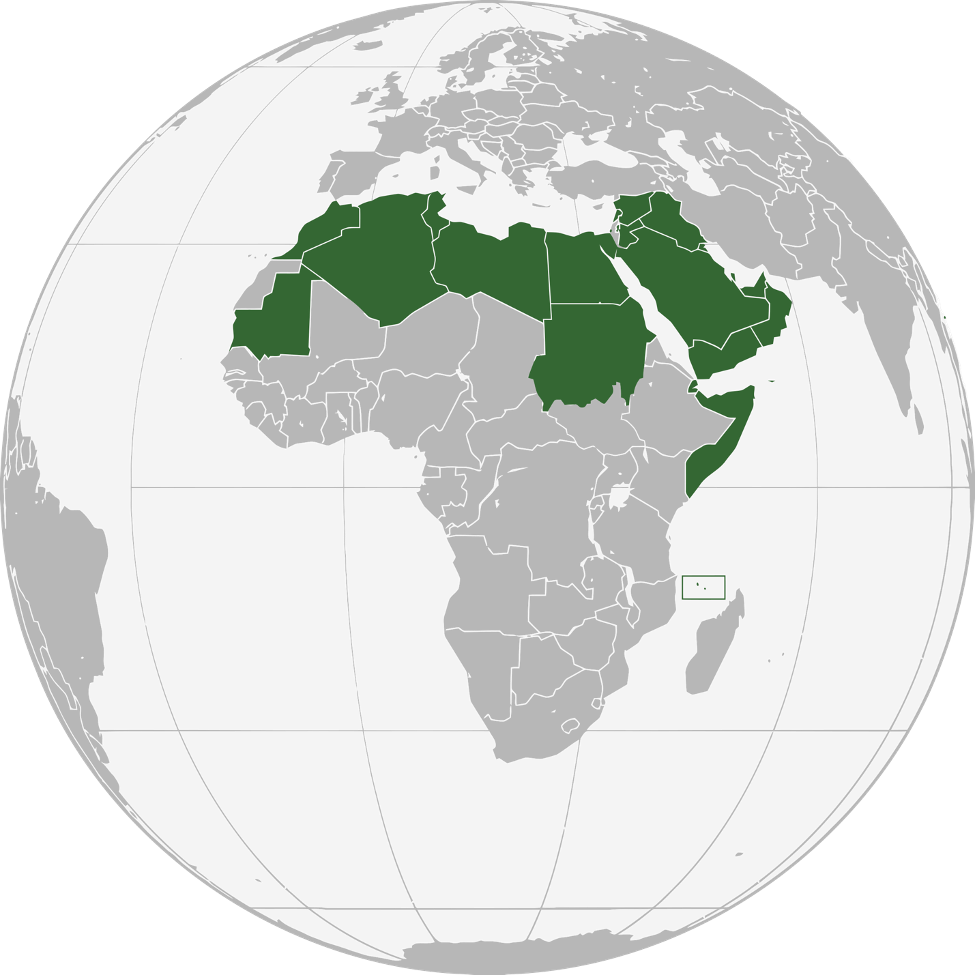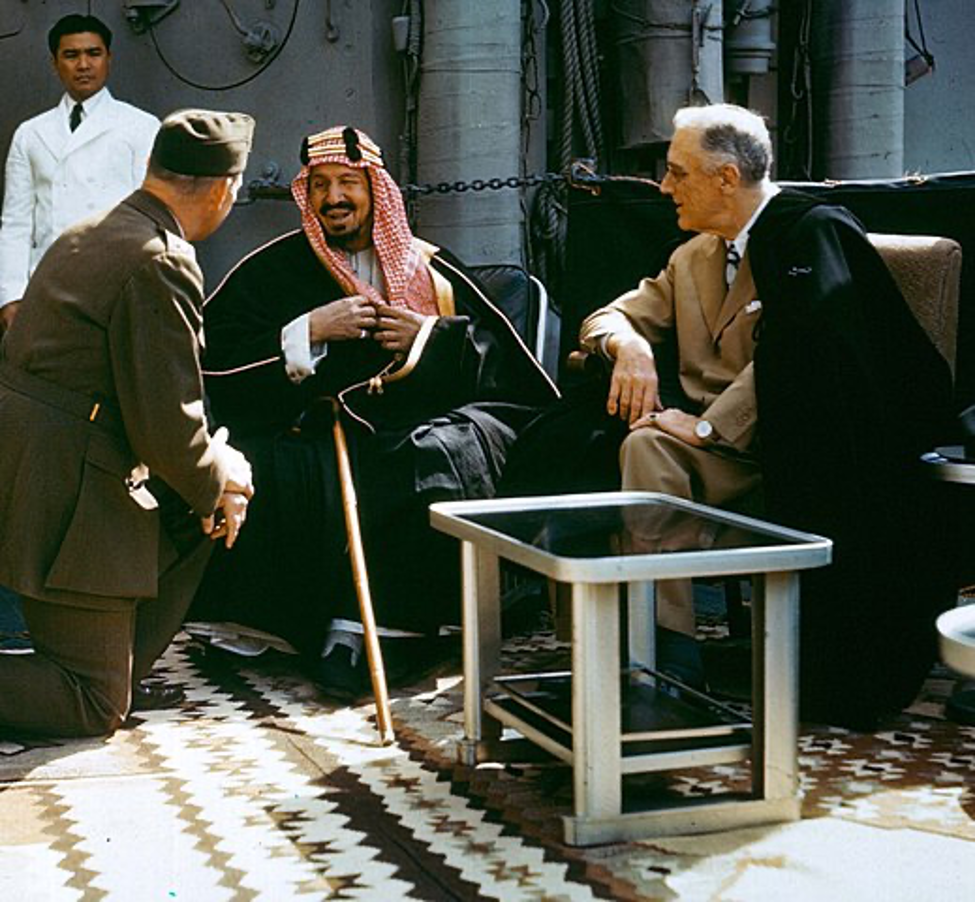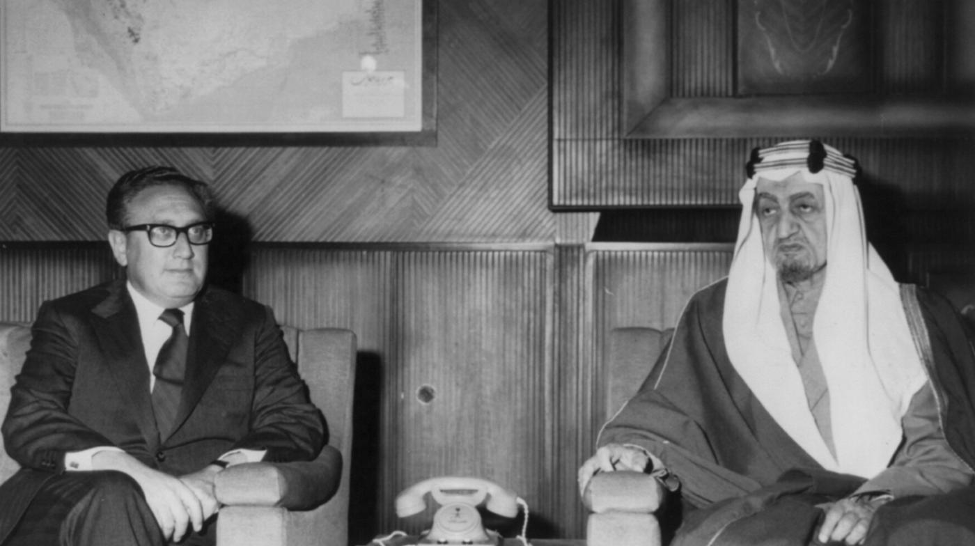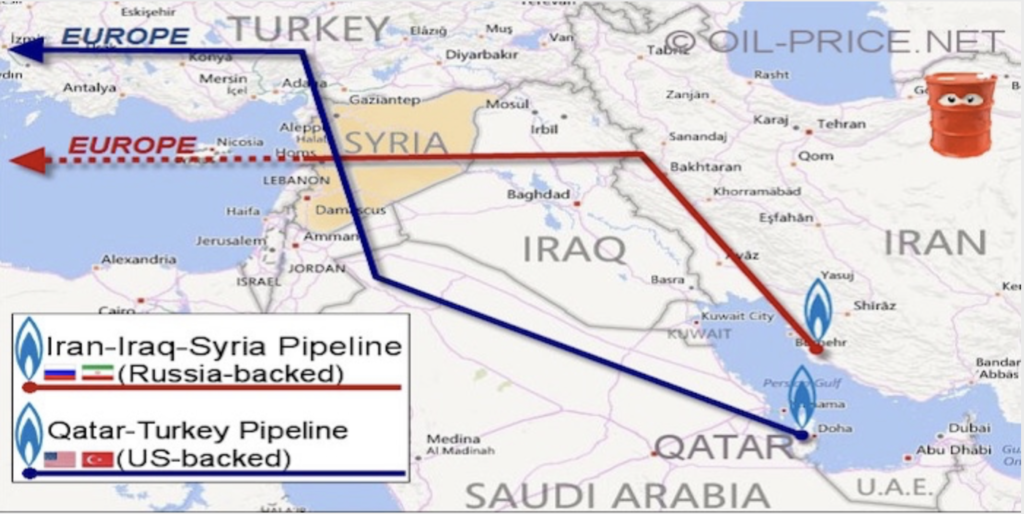Peace breaks out – Arab Spring without blood
The Arab League shows that negotiations without the U.S. lead to peace and arguably complete emancipation from the collective West.
Peter Hanseler

Introduction
The collective West stands speechless; the Global South manages to bring peace to hostile parties, not out of love, but out of the realization that enmity brings nothing to the people but hatred and misery, and enmity is bad for business.
Saudi Arabia, which for years declared Iran a great enemy, makes peace with the Persians in order to join the BRICS and SCO organizations together.
Saudi Arabia, which declared President Assad a mortal enemy in 2011 and spent billions on weapons, bribes and terrorists to topple him, is readmitting Syria to the Arab League, an organization that has barely been noted in the West until now.
This league could strengthen alongside BRICS, SCO, Eurasia Economic Union (EEU) and become another star in the cosmos of multipolarity.
Some thoughts as a possible compass that shows where the journey could go.
Definitions of terms
Collective West
Recently, a new term has been used to describe those countries that are on the geopolitical side of the United States.
The “Collective West” is not a perfect term, since it also includes countries that lie to the east, such as Japan, Australia, and South Korea.
Thus, it is a geopolitical term rather than a geographic one. We will use it that way in the future.
Global South
The BRICS+ countries, the countries of the SCO, the Eurasian Economic Union (EEU) and newly – in my opinion – the Arab League can be described as the Global South.
We should include not only the direct members of these organizations, but also those in their sphere of influence.
Also, the term “Global South” can only be understood in geopolitical terms. The largest country on earth, for example, Russia, belongs to this group, and is not located in the South.
The Arab League
This loose association of Arab and African states is anything but new: This league was founded as early as 1945 after the Second World War and was intended to improve and consolidate cooperation among its members at the political and economic level.
Today, 22 countries belong to it, very rich and large, very poor and small.

The most powerful member of this organization is certainly Saudi Arabia, which is one of the founding members and by far the richest country in this organization.
Important in this context, however, is that the American influence on Saudi Arabia has been huge since World War 2.
Simply put, this influence was based on two important events.
“Thus the petrodollar was born and America’s dominance was assured for the next 50 years.”
Shortly before the end of World War II, American President Roosevelt and Saudi King Ibn Saud met on an American warship in the Suez Canal on Valentine’s Day 1945. At this meeting, America gave security guarantees to the Kingdom in return for access to affordable energy supplies. This was essential for the further industrial development of the USA and at the same time weakened the influence of the British in the Middle East; Roosevelt detested Churchill’s colonial policy, although the two liked each other personally.

Another important event was Henry Kissinger’s negotiations in 1973, when he promised – again – military protection and in return received a promise that the Saudis would sell their oil exclusively in U.S. dollars and invest the proceeds in American bonds. Thus the petrodollar was born and America’s dominance was assured for the next 50 years.

These are the main reasons why the Arab League has never really been able to get off the ground, since it has not been able to take a clear line in the interests of this community and has thus never been able to realize its potential through the U.S. destabilization concept in the Middle East – until today.
Civil war in Syria – the reason for enmity with Saudi Arabia
The civil war in Syria started by the USA has nothing to do with freedom against dictatorship, as we have been and are being led to believe in the West.
“This almost cost President Assad his head”.
Rather, it was about tangible economic interests of the U.S. or its allies and the old U.S. ambition to harm Russia.
There were two projects for supplying Europe with gas from the Middle East:
Project 1, supported by the United States, saw gas from Qatar flowing through a Qatar-Saudi Arabia-Syria-Turkey gas pipeline.
Project 2, supported by Russia, saw Iranian gas flowing through an Iran-Iraq-Syria gas pipeline.

Since Syria was – and is – allied with Russia for over 40 years, Syria loyally favored the Russian project and did not agree to the Qatar pipeline crossing.
This nearly cost President Assad his head when the U.S. infiltrated terrorists into Syria and sparked a devastating civil war.
The Russians helped Assad save the country with small but effective military resources, which – to the surprise of many – succeeded.
For a detailed analysis of the war in Syria, please refer to an excellent study by analyst Endre Szénasi.
As a direct consequence, Syria’s membership in the Arab League was suspended in 2011 at the instigation of the Americans.
“What has been happening in the Global South for just over a year can only be described with the adjective “breathtaking.””
At that time, the Saudis were still participating as stooges of the Americans.
The biggest geopolitical mistake of the 21st century
Since April 2022, this blog has described the West’s freezing of the Russian Central Bank’s foreign currency reserves as the biggest geopolitical mistake of the 21st century – a catalyst steeped in history.
What has been happening in the Global South for just over a year can only be described with the adjective “breathtaking.”
The changes are so brute that this fact cannot be repeated often enough. And I emphasize that as a result of this American geopolitical stupid act, the freezing of Russian foreign currency reserves, the entire Global South – first and foremost China and India – will decouple from the Western reserve currencies, the US dollar and the euro.
Trust – the basis of any financial transaction, whether private, business or large-scale political – is gone. People no longer trust the West – and rightly so.
Peace for the good of multipolarity
De-Dollarization Needs Peace
De-dollarization is a huge undertaking, because the U.S. dollar and the petrodollar have dominated the globe since World War II and since about 1974, respectively, when Henry Kissinger created the petrodollar through an ingenious deal with the Saudis, as described above. By the way, I already attributed an article to this in April last year, which was first published in the Swiss weekly Weltwoche.
The Global South is well aware of the great power of the petrodollar. The fact that China and Russia no longer use the US dollar in bilateral relations will not break the dominance of the US dollar. The Chinese and the Russians are aware of this, and this fact alone merely makes the Americans smile wearily.
What does this outbreak of peace have to do with de-dollarization?
Such a large-scale project only works if a large part of the “rest of the world” participates in a coordinated way. There is no room for squabblers.
“These countries are strangers to a hair-trigger policy or shock-and-awe tactics.”
It is surprising to many in the West that strongly hostile nations such as Iran, Saudi Arabia and Syria are making peace in the interest of the Global South community to break the dominance of the US dollar.
This is a sign that the Mulitpolar World is peacemaking.
These changes are slow and divided among different organizations, which is typical of the mentality of the Global South.
These countries are unfamiliar with a hair-splitting policy or shock and awe tactics. They cautiously and in a well-coordinated manner seek stability and reliability, basic prerequisites for relationships based on respect. These are virtues that are ideally suited to the mentalities of China and Russia.
Failed sanctions as first blow
The first big blow has already been struck without being recognized as a blow.
Much to the surprise of the collective West, most of the world did not participate in the sanctions against Russia. They did not let themselves be put under pressure by the Americans.
The consequences of this are especially treacherous for Europe, which – on orders from Washington – had to bear the sanctions almost alone, because the USA is hardly invested in Russia.
Europe is weakening itself through the sanctions to a degree that the collective West had not expected. An incredible economic policy blunder. Since Russia has not been weakened by this, but strengthened, this leads to a double effect at the expense of Europe.
Four Organsiations as a Cosmos
The four organizations mentioned above – BRICS+, SCO, EEU and Arab League – should not be separated too much from each other in this process of shaping the Global South economically – and probably later also militarily – but should be seen as part of a whole – as planets in a cosmos.
Divide et impera
Divide et impera – Latin for “divide and rule” – was used to describe Roman foreign policy. It describes the policy of setting a group of nations against each other in subgroups with conflicting interests in order to block the way for the group as a whole to represent and assert common interests.
It is fair to say that the Americans have used this policy very successfully – at the expense of those affected – since the end of World War 2.
This is most easily seen in the Middle East. Destabilization of Iran in 1953 through Action AJAX, described in our article “War Without Peace“; the wars for Israel in the 60’s and 70’s; the Iran-Iraq war in the 80’s; the Gulf wars against Iraq in 1991 and 2003, the invasion of Afghanistan in 2001 and finally the civil war in Syria in 2011. The list is not exhaustive.
However, successful implementation of these policies requires one thing: dominance and the power to spread fear among the individual nations of the affected group. In good U.S. terms: dollars and military.
In my opinion, the tide has turned due to the fact that the Americans have not been able to implement their strategy over the last 20 years, despite trillions of dollars invested and millions of civilian deaths.
“The fear of the Americans and their vassals has faded.”
The defeat in Iraq, the humiliating withdrawal from Afghanistan after more than 20 years of war, and finally the fact that President Assad and the Russians managed to inflict a humiliating defeat on the Americans in Syria led to a rethinking not only in the Middle East, but throughout the Global South.
“Divide et impera” replaced by “peace in the group”
Comparable to a product life cycle in industry, U.S. policy has – to put it mildly – reached the saturation phase. This has led the countries of the Middle East to realize that peace and mutually beneficial principles and relations among themselves can protect this group of peoples against further aggression by the United States and the collective West as a whole.
The fear of the Americans and their vassals has faded. In the future, it will be much more difficult for the Americans to sow discord in the Arab world.
A clear indication of this development is, for example, that the Saudis are selling their oil in yuan and rupees. A move away from the U.S. dollar as a transaction currency cost Saddam Hussein his head in 2003 and President Gaddafi his in 2011 when the former accepted euros for his exports and Gaddafi wanted to create the gold dinar.
This is very convenient for the big BRICS countries, which after the peace agreement between Saudi Arabia and Iran were very happy to support the latter’s membership in BRICS and the SCO.
Peace guided by national interests instead of enemy images
It is an open secret that American foreign and domestic policy always creates enemy images to keep the people in line as the ultimate financial sponsor.
In foreign policy and also in domestic policy, after World War II, these were first the communists, who were persecuted not only internationally, but also – between 1947 and 1956 – in the U.S., where Joseph McCarthy organized a regular witch hunt not only against them, but against simply liberal-minded people, often from artistic circles.
With the fall of the Berlin Wall, the communists had done their duty – they were replaced by the terrorists – the “War on Terror” was born.
Then came again the Russians and now finally – also for the repeated time – the Chinese to the cash – without enemy it does not work.
The people in the Global South function quite differently. Already the Russians, who do not only see themselves as Europeans, but without any doubt are Europeans, showed very soon after the end of World War II that they – as the most maltreated people of World War II – applied an emotional strategy of forgiving, but not of forgetting and thus did not only win bitterness inside, but also sympathies from outside.
Now I am no expert on the Arab or Chinese mentality, but the peace agreements between hostile nations is more than surprising for Westerners and will, in my opinion, lead to a complete emancipation from the collective West.
Conclusion
The importance of the Middle East peace accords should not be underestimated.
The Arab League will probably join BRICS, SCO and EEU as the fourth planet in the cosmos of the global South.
U.S. domination of the Middle East appears to be over, as peace will mean that the strategy of divide et impera will no longer work, and fear of the U.S. will be replaced by community confidence.
Emancipation from the collective West and the petrodollar is gaining momentum, catalyzed by bad decisions by the West.
11 thoughts on “Peace breaks out – Arab Spring without blood”